Wednesday, June 11th
Day 1: Visions in Action
Co-Creation Workshop and Panel Details
Further updates will be added below before the Summit
Researchers ignite expert discussion
AI in Service: Roundtable Discussion
Leveraging Process Mining
Digital transformation in urban areas
Digitization in F&B sector
Leader Workshop: enhance sustainability
Funding Innovation for SME’s
Researchers ignite expert discussion
AI in Service: Roundtable Discussion
Leveraging Process Mining
Funding Innovation for SME’s
Digital transformation in urban areas
Digitization in F&B sector
Leader Workshop: enhance sustainability
8:50am
Welcome by IVI Director Prof. Markus Helfert

Prof. Markus Helfert
9:00am
Opening Address by Prof. Rachel Msetfi

Prof. Rachel Msetfi
9:20am
Opening Panel

Prof. Joseph Coughlan

Peter Clifford

Dr. Clare Thornley
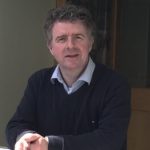
Dr. Patrick Lynch
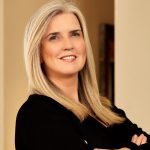
Edwina Fitzmaurice
Advanced Digital Skills in a rapidly changing world – Can we win the race for talent?
The importance of digital skills is recognised across all sectors and those skills are essential for economic growth and crucial for staying competitive, shaping how we live, learn, work, and connect. The rapid pace of technological advances necessitates a focus on reshaping the skills provision and foster lifelong learning to stay relevant in the workforce and beyond. Internationally we are facing a race for talent with intense competition among organizations, regions and countries to attract and retain skilled people. The demand for AI experts, software professional and data scientists, digital transformation specialists, digital innovators and researchers is particularly high.
However, the key question remains: How do we stay ahead, be attractive for those specialists and what skills are actually needed for our digital future?
The EU has set bold digital goals for 2030. In addition to the aim for 80% of people in Europe to have basic digital skills, the EU also aims for 20 million ICT specialists, supporting AI, Digital and Data solutions in businesses. But, the Digital Decade Reports tell an eye opening story how much needs to be done. In Ireland, the Impact 2030: Ireland’s Research and Innovation Strategy emphasises talent at the centre of the research and innovation ecosystem.
With this panel we aim to discuss what needs to be done to win this race for talent. It requires innovative approaches to think about upskilling, skill provisions and new professions coupled with innovation. We need to discuss what infrastructure is needed and how other, wider challenges affect employee’s attraction and retention. Investing in digital skills development and creating and attractive workplaces is one element to attract top talent. However the discussion goes far further, it includes the attractiveness of our research and education ecosystem and how to shape advanced career paths. It also requires bridging the gap between and balancing expectations from industry, academia, and policymakers to drive digital leadership and economic sustainability.
With this panel we will bring key stakeholders from industry, public, policy making, education and research together to discuss questions around:
· What role do advanced digital skills play in competitiveness and economic growth?
· What skills are needed related to emerging technologies like AI, machine learning, cybersecurity, and data science?
· What are European and Irish initiatives and policies driving the development of digital skills and accelerating the digital transition across sectors?
· How is the landscape of professions and skills provisions for digital transformation evolving?
· How can future professionals be motivated and supported to embrace on a continue learning journey?
· What are new ways of learning and how technology can help to address these gaps and create new opportunities for learning and development.
· What education and research programs (including Phd programmes) are required to meet the needs for the digital future.
· How can SMEs compete in this race for talent and what role do advanced digital skills play in SMEs?
10:00am
Coffee & Networking Break with Poster Display
10:30am
Workshop Morning Slot
Research Symposium on Digital Transformation, AI and Data

Dr. Claudia Roessing

Dr. Nicola Mountford

Dr. Gültekin Cakir

Dr. Beibei Flynn

Peter Jean Paul
This session invites early researchers to showcase their innovative research. This is an excellent opportunity to present your work, receive constructive feedback, and engage with peers and experts in your field.
Why Participate?
Improve your research with expert feedback: Present your findings to a varied audience of top academics, industry practitioners, and researchers. Receive invaluable, constructive criticism and insightful guidance that can improve your methodology, strengthen your conclusions and improve your research trajectory.
Forge Collaborations: Connect with experts, potential collaborators, and peers who share your interests. Expand your professional network to open doors to future research projects.
Showcase Your Innovative Contributions: Highlight your work and get recognition for your unique contributions to the fields of digital transformation, AI, and data.
Engage in stimulating conversations: Share your methodology, compelling findings, and future visions to inspire new ideas and encourage a rich exchange of knowledge at the intersection of these crucial fields.
Don’t miss this exceptional chance to accelerate your research journey, gain critical feedback, and connect with a global network of experts.
Important Dates
All deadlines are GMT time zone
· 7th April – Call for posters opens
· 30th May – Submission deadline
· 3rd June – Communication of results to applicants
Submission
Submissions must be relevant to the summit theme and must include the research problem, methodology, findings up to date, and conclusion. Acceptance decisions will be made based on topic relevancy, originality, significance, and clarity.
· Posters are required to use this template.
· Please use clear and concise language for your poster.
· Please use a simple, legible font and make sure the colour of the font is easy to read.
· Poster submissions that don’t follow the aforementioned guidelines won’t be accepted.
· Please send your pdf file to claudia.roessing@mu.ie.
10:30am
Workshop Morning Slot
Roundtable debate: The Future of Digital Service Innovation – Bridging Artificial Intelligence and Human-Centric Design

Prof. Markus Helfert

Dr Marco Alfano

Kathryn Cormican
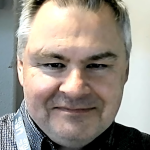
Greg Doyle

Prof. Matthew Mullarkey
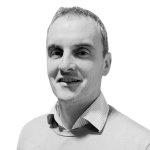
Nollag Conneely

Trevor Vaugh

Prof. Mary Kinahan
Digitalisation provides significant opportunities to develop entirely new digital services, yet we are only beginning to understand how end-to-end services and processes can be designed, developed and how they benefit individuals, businesses and public sector as well as the society. The paradox of simple service delivery and increased ecosystem complexity mean that understanding how digital service innovation is designed, delivered and sustained is essential. Service, as opposed to physical products, are programmable allowing for adaptability of their business models and value propositions. Across all sectors we see similar changes to the redesign of value chains embracing new enabling technology toward sustainability. Organizations are shifting from product-oriented offerings to service-oriented, often disruptive business models.
With Artificial Intelligence, Machine Learning and Large Language Models together with voice-control interactions and sensor networks using digital agents, we are able to established a range of automated services, hyperconnected building new ways of interaction and decision making. However at the same time user orientation, customer experience and human-centered innovation and design are essential.
With this roundtable discussion we aim to explore these and related topics, helping to understand and support digital service innovation. We aim to ask questions around:
· What makes service innovation successful?
· How does digital technology/data enable services?
· How do we design and implement effective public service that are people-centred, inclusive, · user-friendly?
· How do we design and develop technologies to improve user experience?
· How can we standardise and govern service and data platforms?
· How can policy directions facilitate service ecosystems?
· What role do individuals, business and society play?
10:30am
Workshop Morning Slot
Process Science in Action: Process Mining to Untangle, Discover, and Optimize Your Business
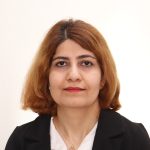
Azra Aryania

Prof. Jan Vom Brocke
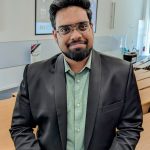
Samarth Santosh
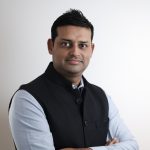
Kammil Mahajan

Ellie Fitzpatrick

Eibhlin Ni Oisin
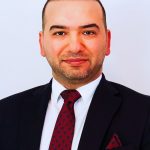
Dr. Amir Hossein Azadnia
The workshop provides a comprehensive introduction to process mining, offering participants a solid foundation in its core techniques, real-world applications, and common challenges.
Combining theoretical insights with hands-on activities, it equips attendees with the knowledge and practical skills to analyse and optimize business processes. Participants will explore how process mining is applied in organizational and industrial contexts to enhance efficiency, ensure compliance, and support data-driven decision-making.
The workshop is structured into four sessions:
· Session 1 (50 minutes): Short presentations introducing key approaches and solutions, along with an overview of process science and process mining in action.
· Session 2 (40 minutes): Exploration of potential use cases for optimizing business processes using process mining, followed by a brief Q&A session.
· Session 3 (40 minutes): Roundtable discussions among panellists, including audience Q&A.
· Session 4 (20 minutes): Summary of key discussion points and exploration of further opportunities in both industry and academia.
By the end of the workshop, participants will:
· Understand the core concepts, techniques, and methodologies of process mining.
· Gain insights into the practical applications and benefits of process mining within organizations.
· Explore real-world use cases where companies have successfully applied process mining.
· Discuss current challenges and identify future innovation opportunities for industry.
· Participate in interactive discussions on how to apply process mining in various domains.
10:30am
Workshop Morning Slot
Funding Innovation for SME's and Startups

Paul Heynen

Phyllis Donohoe
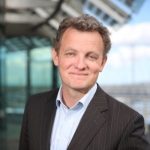
Edward Duffy

Joe Doyle
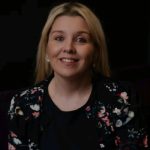
Caraldine Nolan

Peter Conlon

Indudhara Havaldar
Join us for an engaging event focused on innovation and business growth for startups and SMEs looking to scale their businesses. We will explore the supports available for Irish business to turn their innovative ideas to working solutions.
The agenda includes insights on navigating Irish government business supports, a workshop on rapid prototyping using design thinking, and case studies highlighting successful funding journeys. Participants will gain valuable knowledge on protecting intellectual property and strategies for transitioning from lab to market.
The event will also feature interactive Q&A sessions with speakers, allowing for deeper discussions on the topics presented. A networking lunch will follow, fostering connections and collaboration among participants.
13:00
Networking Lunch & Poster Display
14:00
Workshop Afternoon Slot
Sustainable Cities and Urban Places: Digital Innovation, New European Bauhaus and Circular Strategies

Dr. Zohreh Pourzolfaghar

Simon McGuinness

Sander Frank, MA
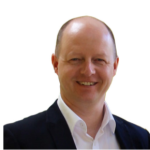
Gavin Duffy

Fernanda Rocha
Cities, regions and municipalities are challenged to balance numerous and diverse interests while aiming to improve economic growth and environmental sustainability.
As cities and urban places grow and transform, challenges often lie in navigating this increased demand and changing their established practices and behaviours. Sustainable urban planning and design includes the development and reshaping of the built environment, catering to the citizens’ needs by, among many others, mitigating the environmental impact.
How to incorporate circular design in cities, the built environment and in urban places is challenging. Innovative ideas and rethinking of design approaches along the entire ecosystem are a corner stone for the green and circular initiative. On a European level, the new European Bauhaus provides a policy to facilitate the green transition in built environments and beyond, enjoyable, attractive and convenient for all. Communities and living spaces that improve the well-being and sense of belonging for all. The initiative promotes solutions that are not only sustainable, but also communities, well-being and inclusiveness together with beautiful design, while respecting the diversity of places, traditions, and cultures in Europe and beyond. Digital solutions such as data platforms and artificial intelligence play a key part in this transition, providing opportunities for innovation, design, as well as sustainable and circular places.
With this workshop, we aim to explore new opportunities, and we will delve into some aspects of sustainable urban planning and design and explore its research and practical aspects. The workshop will include:
· Presentation and discussion of current trends in relation to sustainability solutions and urban planning.
· An overview and discussion of the New European Bauhaus (NEB) initiative
· Exploring Funding and Support Opportunities
· Exchange collaboration opportunities between companies, municipalities and research
Key areas include:
· Balancing Growth and Sustainability: Exploring challenges in managing different stakeholder interests when promoting sustainable urban development.
· Circularity & Sustainability: Exploring circular economy approaches in cities and regions to reduce costs and resource consumption, energy-efficient buildings and decarbonisation efforts for a more sustainable and circular urban environment.
· New European Bauhaus with solutions that are not only sustainable, but also inclusive and beautiful, while respecting the diversity of places, traditions, and cultures
· Data-Driven Urban Planning: Discussing how to use and govern data and Digital Twin Technology to analyse urban challenges, predict future needs, and make informed decisions about infrastructure and services.
· Smart Services & Citizen Engagement: Exploring how digital solutions and AI can improve sustainable practices, enhance citizen participation, and create a more connected community.
14:00
Workshop Afternoon Slot
Transforming Food & Beverage: Addressing Digitalization Challenges Across Europe

Roshmita Kanungoe

Dervla McCabe

Margaret Dineen

Lishia Teh

Phyllis Donohoe

Ellen Cleary
The aim of this session is to engage food and beverage (F&B) industry leaders, digital transformation experts, and key stakeholders in an in-depth exploration of the challenges and barriers to digitalization in the F&B sector in Ireland and the EU.
Outputs:
- Identification of key challenges hindering digitalization in the F&B sector, including technological, regulatory, and operational obstacles.
- Insight into current and future digital trends shaping the F&B sector, such as AI, automation, blockchain, and consumer-driven innovations.
- Thought leadership from industry leaders and policymakers on actionable solutions for addressing digitalization challenges in the F&B sector via an engaging panel discussion.
- Opportunities for attendees to connect, exchange ideas, and build a collaborative network to support digital transformation in the industry.
14:00
Workshop Afternoon Slot
GoGreen Next: Pathways to Change for New Horizons

Prof. Tadhg E. Maclntyre
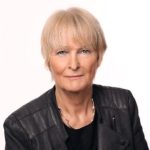
Terri Morrissey

Annalisa Setti

Alan Scarry

Prof. Craig Mahoney

Dr. Elaine Gallagher
.
This is bespoke workshop for leaders who can benefit from reflections and learning on how to manage and adapt to change.
GoGreen Next, a six million EU Horizon Europe project focused on promoting urban health across four pilot areas in Europe, including Cork City, are hosting a workshop for those interested in change and the global challenge in adapting to sustainability and climate change targets.
This interactive workshop is designed to equip professionals with practical tools to embed sustainability into their work by harnessing the power of storytelling, positive language, future-thinking, and influence. Through engaging exercises, participants will explore how narratives shape perceptions, learn how to communicate sustainability effectively, envision different future scenarios, and develop strategies to influence others toward meaningful action.
The session also includes an outdoor reflective walk, fostering deeper engagement with the themes. By the end of the workshop, attendees will leave with clear, actionable strategies to drive sustainability in their professional environments.
About the Team
The facilitators are psychologists, and members of the EU funded project team and their advisory board. Experienced in research and implementation, they are all skilled facilitators in supporting transformative change. The team includes psychologists Dr Elaine Gallagher, Dr Tadhg MacIntyre, Terri Morrissey and Dr Annalisa Setti, Dr Alan Scarry and Dr Mary Kinahan.
From the School of Applied Psychology at University College Cork, Dr Annalisa Setti is concerned with maximizing the co-benefits of nature and environmental interactions for different groups including those with sensory sensitivity and the elders. She collaborates regularly with Cork City Council and Cork Healthy Cities on topics related to nature-based solutions, climate change and resilience. An advocate of the UCC Green Campus she advices on topics related to the role of nature contact in students’ well-being and sustainably lifestyle. In this session, she will guide participants through exploring possible futures, challenging assumptions, and expanding their capacity to drive change in a psychologically informed way, and highlight the potential for bias to influence our perspectives.
Dr Tadhg MacIntyre is based at the Innovation Value Institute at Maynooth University where he leads two EU funded projects on urban health. GoGreen Routes which is at final reporting stage is a 52 month project on urban health which included Limerick among it’s target cities. At Maynooth University he leads the Masters of Science program in Environmental Psychology.
Together with Tadhg and Annalisa, Dr Elaine Gallagher is co-editor of the forthcoming Springer/Palgrave text entitled ‘The Individual and Climate Change: A Psychological Approach to Action.’ Elaine studied for her undergraduate degree in psychology at Maynooth University, pursued a MSc. in Environmental Psychology at the University of Surrey and graduated from Bath University with a PhD. Formerly a post-doctoral researcher at the University of Limerick, Elaine is a consultant in sustainability working with industry in Ireland and the UK.
Terri Morrissey is a consultant with the firm ‘This-is’, an organisational psychologist, and former CEO of PSI. In 2020, her book ‘Uncertainty Rules? Making uncertainty work for you‘ was published and Terri has played a major role in developing psychological approaches to climate change and sustainability with the APA, the Global Psychology Alliance and with An Taisce. Most recently, Terri was the innovation manager for the EU funded project GoGreen Routes, and is a member of the advisory board of GoGreen Next.
Dr Mary Kinahan, an organisational psychologist, and Alan Scarry, a sustainability and food science post-doctoral researcher, are both at Maynooth University, in the School of Business and at the IVI, respectively.
FAQs
Who should attend the event?
Thought leaders in national agencies, the private sector and leaders in cities will be invited to join this half-day workshop on ‘change’ in light of sustainability, climate change and other environmental challenges via a focus on language, story-telling, future thinking and active influence.
Why should I attend?
We all face increasing challenges to navigate a changing world. The workshop is designed to support you in finding a pathway to change that is relevant to your professional context. This ‘think-in’ event is an opportunity to create your own compass to help you navigate key challenges.
What does the workshop involve?
The workshop operates on four different levels. Firstly, we address the key challenges and recognise them collectively, then we explore our personal narrative with nature and then reflect on the language of change. Finally, we look at how this language can help us empower others and build consensus.
16:30
Presentation by Prof. Edward Gregg
.
The Converge Programme: Optimizing Decision-Making for Chronic Diseases through Better Integration of Population Health Disciplines

Prof. Edward Gregg
16:50
Feedback from Sessions
17:10
Wine and Canapé Reception
Go Green Next
Read More
To be added
Smart Cities
Read More
To be added
Poster Session
Read More
Poster Session
This session’s objectives include providing a platform for researchers to present their work, as well as to facilitate interaction and discussion among researchers from different fields and institutions. To give researchers, particularly students and early-career researchers, the opportunity to present their work, gain presentation experience, and receive constructive feedback.
For this session, we welcome PhD students and postdoctoral researchers to present posters on the summit theme.
Posters will be assessed by a Panel Committee composed of academic researchers and industry stakeholders. Submissions must be relevant to the summit theme. Acceptance decisions will be made based on topic relevancy, originality, significance, and clarity. Posters can be sent by email.
Poster
Submitted posters are required to use the template that will be provided by IVI.
Important Dates
All deadlines are GMT timezone
- 18th March - Call for posters opens.
- 19th May – Call for posters closes.
- 3rd June – Communication of results to applicants.